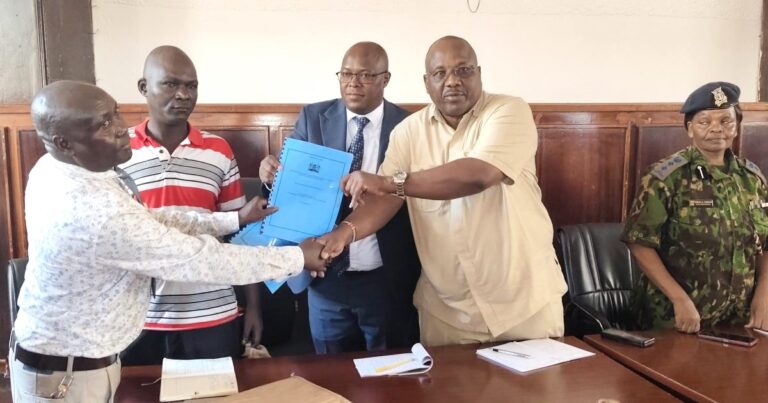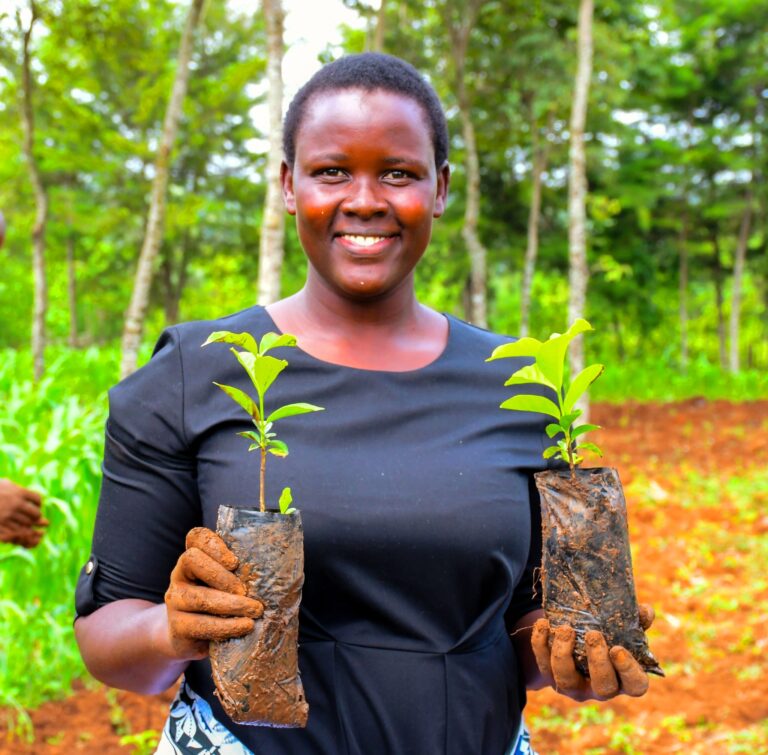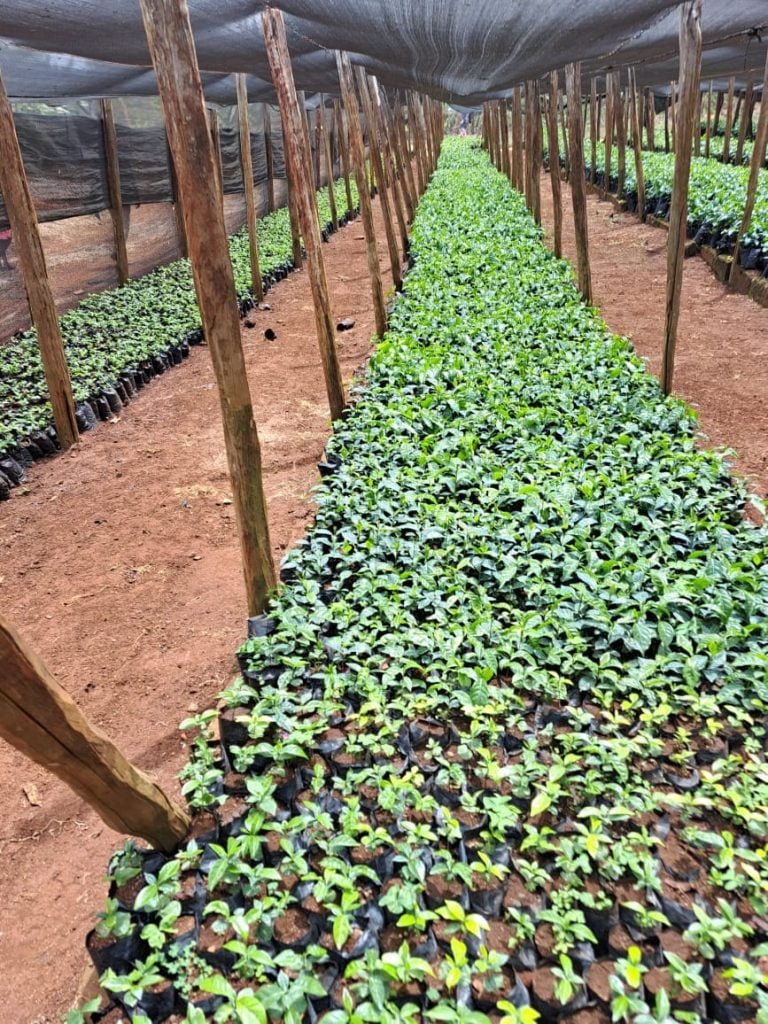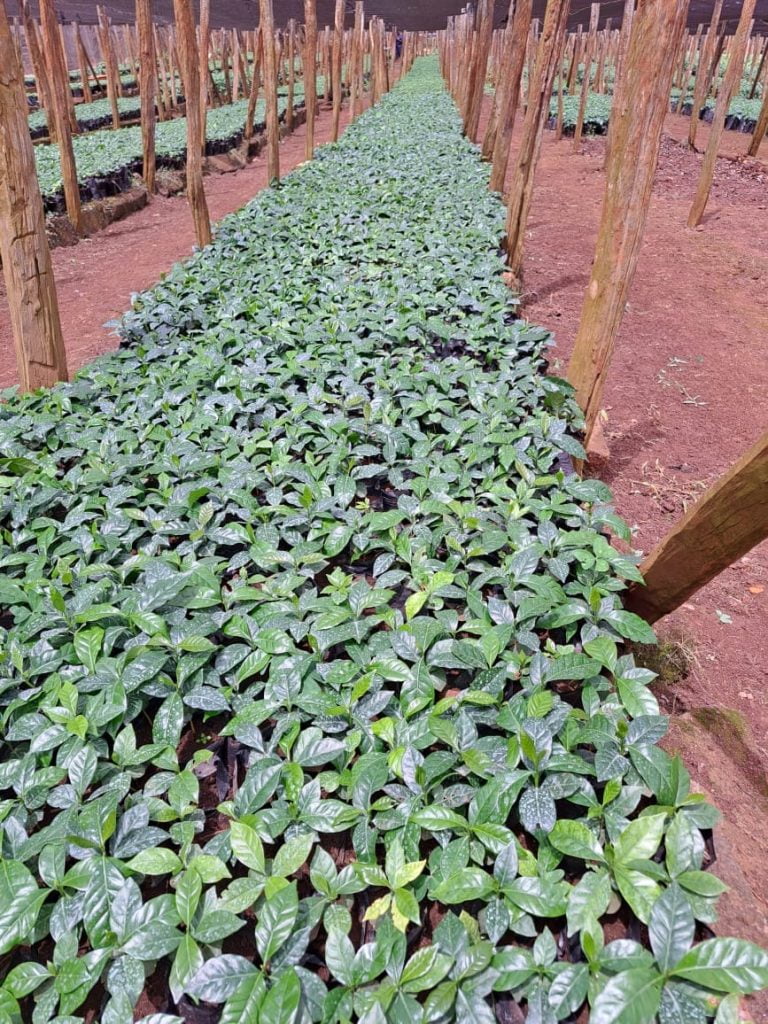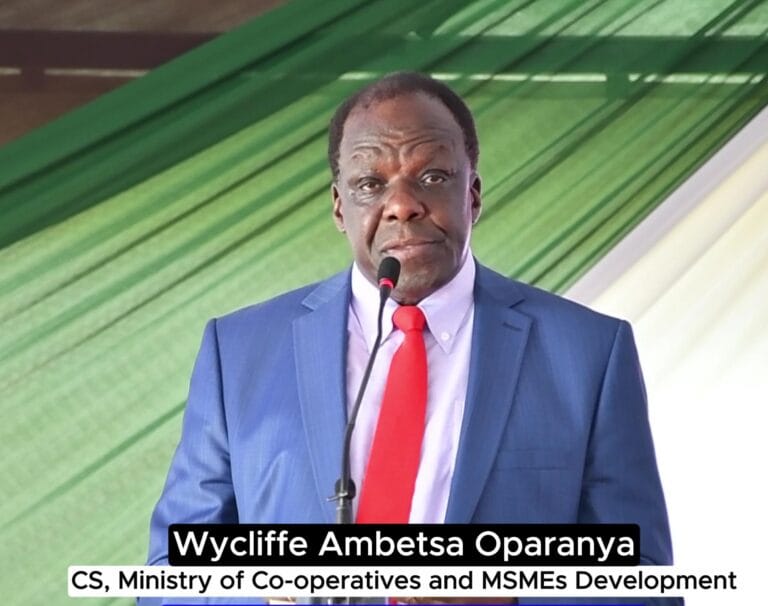By Kimuri Mwangi
The National Task Force on Coffee Sub Sector Reforms was appointed vide Gazette Notice No.1332 of 4th March, 2016, to review the entire coffee value chain and identify areas that require interventions such as production, processing and marketing of coffee in Kenya.
The appointment of the Taskforce was necessitated by the substantial decline in coffee production in the country. The Task Force did the review and prepared a report which encompassed eight pillars of recommendations and presented it to the President. After receiving the Report, the President on 30th September, 2016 appointed the Coffee Sector Implementation Committee (CSIC) through the Gazette Notice No. 7745 to facilitate the implementation of the recommendations in the Report. The mandate of the CSIC was to:
a) Coordinate and provide strategic leadership in the implementation of coffee sector reforms;
b) Develop a roadmap and action plan for the revival of the coffee sub-sector focusing on production, marketing and value addition;
c) Review the current regulatory framework for the subsector and propose changes to align it to current and future needs; and
d) Perform any other function necessary to ensure effective coordination of the on-going coffee reforms and realization of its objectives.
It is this committee that was placed in the office of the Deputy President Rigathi Gachagua by President Ruto recently in an Executive Order.
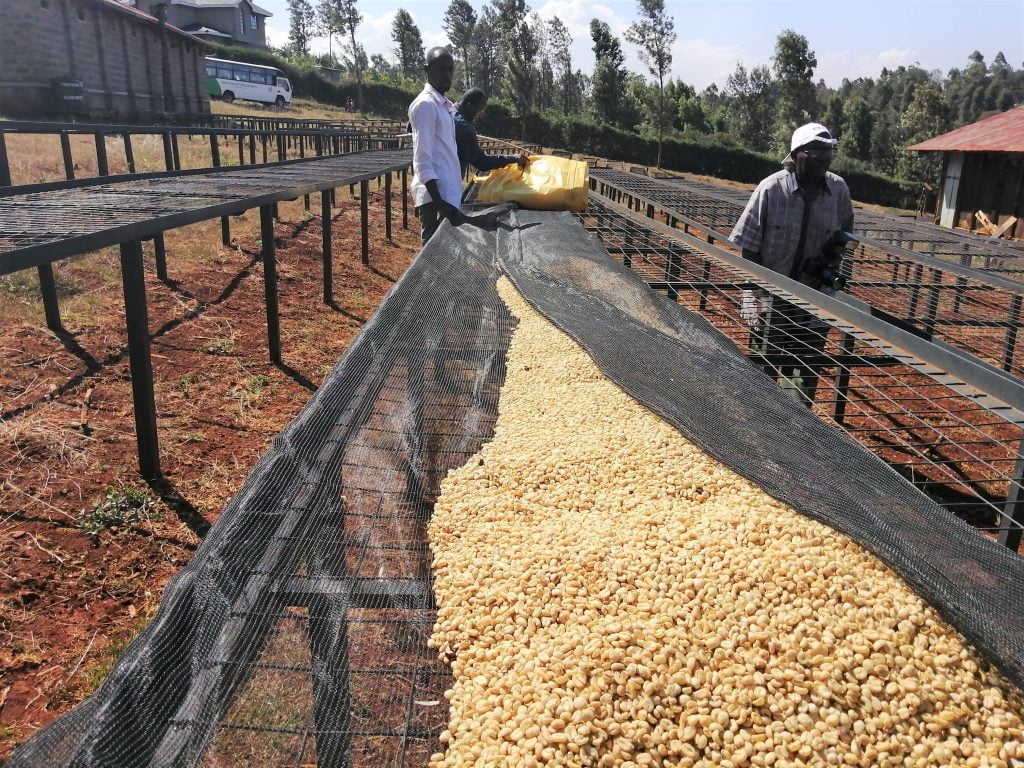
The reforms were supposed to be a relief to coffee farmers across the country who had made loud cries that they were no longer benefiting from their precious commodity. Most farmers felt that they lost ownership and control of their coffee once they delivered it to their local coffee factory and the selling process started.
Among the many recommendations were several that were intended to let the farmers feel that they had control over their coffee during the selling process. These include
a) Two channels of marketing clean coffee are provided for- weekly auctions at the Nairobi Coffee Exchange, and direct sales.
b) The coffee exchange is required to be an incorporated entity and seek a licence from the Capital Markets Authority (CMA).
c) The coffee exchange is required to develop rules that align to Coffee Exchange Regulations to enhance transparency and price discovery.
d) Growers’ organizations have been redefined to include other associations besides estates and co-operative societies, thus bringing healthy competition for efficiency.
e) The coffee grower is recognized as the principle and owner of the coffee while his/her service providers are his/her accountable agents.
f) Growers are allowed to directly market their coffee through a grower miller license. This will eliminate the need for USD 1 million guarantee.
g) A transparent coffee auction sales proceeds payment system named Direct Settlement System (DSS) has been introduced. It is a banking facility for clearing and settlement of the coffee sales proceeds. The exchange is required to establish the DSS and a linkage between the DSS provider and coffee warehouses.
h) The grower or the growers’ authorized representatives shall supply the relevant information on growers to a DSS provider through the exchange
i) A grower milling license is introduced giving coffee growers direct access to the market for their coffee either through direct sales or the exchange.
j) The marketing agent’s license is abolished and the grower is provided access to market own coffee, or alternatively, engage a broker for sale through the exchange or an agent for direct sale. Such brokers or agents are therefore optional and have been given limited functions with no authority to handle/receive the growers’ coffee money.
k) A local roaster’s license is introduced to enable holders buy clean coffee from growers or from the exchange. This is intended to enhance domestic coffee value addition, sale and consumption.
l) Registration of growers by county for data purposes is provided for.
m) Contractual obligations forming part of every contract for license holders and service providers are provided for in the general regulations to protect the growers’ interests and for accountability. Obligations for the coffee exchange and the DSS provider are provided for in the exchange regulations.
n) In blending coffee, the person is required to declare the percentage of Kenyan coffee in the blend.
o) To eliminate conflict of interest, buyers are prohibited from taking licences as commercial millers, warehousemen, brokers, roasters, or agents. A similar prohibition is also given to commercial millers.
p) Provision is made for licensing of brokers by the Capital Markets Authority (CMA) and conditions for their licence. Their function is limited to sell coffee at the exchange when appointed by growers but will not receive money.
q) All coffee value chain actors are required to digitize their systems for efficient service delivery and information dissemination.
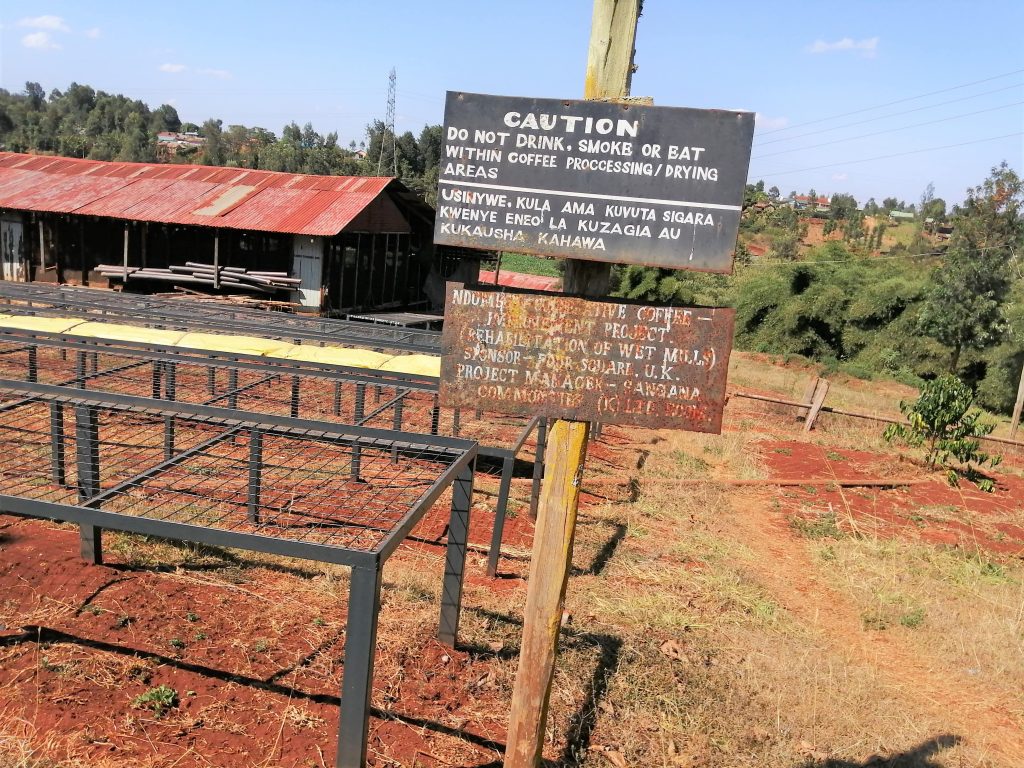
The recommendations above once implemented are expected to solve the many issues that arise during the selling of coffee. The selling process has been identified as one that is highly abused and manipulated to the disadvantage of the farmers.
Once farmers deliver coffee to the factory, companies begin a high-profile campaign to win their support to let them sell the coffee. Cooperative officials are the first to be wooed by the companies where big money is known to exchange hands. Some are sponsored for holidays where they are made to understand that more benefits are on the way if they played ball.
In the village, there is an emissary who sends messages discreetly that a senior official from a company will come to “greet” coffee farmers and the venue is shared some few hours to the meeting. The time is always at night and under the cover of darkness, the “official” pleads with them to give them their coffee and they will not regret. To drive the point home, every farmer leaves with Kshs. 500 with clear instructions to support the company in the meeting organized by the cooperative to decide who to give their coffee. Needless to say, the compromised farmers end up choosing the company without bothering to check on the important aspects of the deal especially the role the company is supposed to play.
Many companies are buyers, commercial millers, warehousemen, brokers, roasters and agents all rolled into one. This means that some have ended up receiving farmers money and giving all kinds of excuses ending up not paying them.
The other important recommendation is the capping of co-operative society charges for all expenses incurred and services provided at 20% of gross earnings and budgeting made necessary. This is intended to help in the running of the cooperative societies in an efficient manner without the management taking advantage of the farmers.
Some cooperatives have been known in the past to have incurred a lot of expenses such that they take a sizeable chunk of the money that is supposed to go into a farmer’s pocket. Some cooperative officials have also been known to take loans without the farmers consent plunging them into serious financial implications that has left some on the verge of having the property auctioned.
The Agriculture and Food Authority (AFA) shall also play an important role if the recommendations are effected. They will issue licenses to independent coffee cupping laboratories, warehousemen, liquorers, and buyers (traders), issue movement permits for purchased clean coffee. AFA will also regulate imports and exports of coffee, register coffee dealers- warehousemen, warehouses, millers, buyers, roasters, brokers, agents, importers, coffee bag suppliers, and certification companies and keep updated registers.
For Coffee Brokers the recommendations propose that they shall be corporate entities limited by shares and they will seek a clearance letter from the coffee exchange for approval and licensing by CMA.
They will also have directors and personnel who meet the fit and proper criteria set by the Capital Markets Act. On appointment, they will offer clean coffee for sale at the exchange on behalf of growers and issue invoices to successful coffee bidders for payment through the direct settlement system.
They will also not receive coffee sales proceeds on behalf of the growers but receive payment for their services through the direct settlement system. They shall maintain records of coffee sales transactions with details of grade, price, date, buyer, growers.
Unlike now when most coffee farmers can’t access market information of their coffee, brokers are required to disseminate timely market information for every coffee auction to
growers in form of sales statements. They should also remit sales outcomes to the exchange and the direct settlement system provider.
The recommendations also require that Coffee agents shall be appointed by the grower. They are to be appointed for purposes of facilitating the logistics for the grower of overseas direct sale and to offer processing requirements related to coffee exports. They will offer clean coffee for direct sale on behalf of the grower and disseminate information on the direct sale transactions to the grower and the growers’ licensing authorities while maintaining records of the direct sale transactions. As Deputy President Rigathi Gachagua takes the driver’s seat on matters on coffee reform, it will be interesting to see how he will steer the implementation of the recommendations and whether there will be more review of laws in the sector. A harsh critic of the current coffee selling process in the country, the Deputy President is expected to push for more reforms. He has been quoted supporting Guaranteed Minimum Returns (GMR) for coffee and it is expected to appear in the coffee reforms



